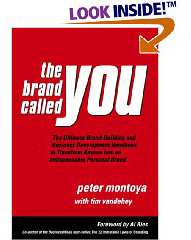Are We Really Attracted To Competent People
 All things being equal, experts generally agree that we tend to like competent people especially when they become relevant in our lives. This includes our parents, teachers, doctors, electrician, investment broker, auto mechanic, etc. The opposite is also true. As much as we are attracted to competent people, we are repelled from people who are candidates for the Darwin Awards.
All things being equal, experts generally agree that we tend to like competent people especially when they become relevant in our lives. This includes our parents, teachers, doctors, electrician, investment broker, auto mechanic, etc. The opposite is also true. As much as we are attracted to competent people, we are repelled from people who are candidates for the Darwin Awards.
When you become relevant in a person’s life, they will like you more or less based on your level of competence in the area where you’re relevant. If you’re an auto mechanic, they will judge you on your knowledge of cars. If you’re a teacher, they will judge you on your knowledge of the subject you teach and your ability to teach that subject. If you’re a potential spouse, they will judge you on a whole host of factors, none of which you’ll be able to live up to of course.
Here are a few things you can do to build your competence and likeability.
Do what you do better than anyone else
Walt Disney was supposedly quoted as saying, “Do what you do so well, that people want to see you do it again. And not only do they want to see you do it again, but they want to show their friends what it is that you do so well.”
People who are experts in their field, don’t just act like experts, they are the experts. They do what they do so well that they create an overwhelming demand for their time and their service. They become trusted and well liked celebrities in their field.
Become an expert in your field
 Earl Nightingale, the inspirational author of “The Strangest Secret,” noted that anyone could become an expert in a very short time. His premise was that if you focused on learning any single subject for one hour a day every day for a year, it would be the equivalent of going to class for eight hours a day, five days a week for almost two and a half months. If you did the same thing for five years, it would be the equivalent of going to class every day for a year.
Earl Nightingale, the inspirational author of “The Strangest Secret,” noted that anyone could become an expert in a very short time. His premise was that if you focused on learning any single subject for one hour a day every day for a year, it would be the equivalent of going to class for eight hours a day, five days a week for almost two and a half months. If you did the same thing for five years, it would be the equivalent of going to class every day for a year.
According to Earl Nightingale, if you dedicated just one hour a day to the study of your passion, you would quickly find yourself in the top one tenth of one percent in your field in a very short time. And today, with universal access to the Internet, there is virtually no reason you can’t achieve that level of expertise even without going back to school.
Look the part
People who are experts in their field look the part. Batman, Wonder Woman and Spider-Man are all good examples. They’re believable characters because they dress like you would expect a superhero to dress. If you don’t look the part, people are not going to find you credible.
It’s important to note that even superheros don’t wear their superhero outfits day and night. They play off-duty roles including newpaper reporter, freelance photographer and multi-millionaires. They dress the part when they want to project the part, even they’re involved in everyday activities. That’s why I wear a suit and tie when I give public presenations and a Superman cape when I go to county to pick-up my meds. I’m teasing of course, I don’t acturally wear a suit and tie. How silly.
 There is a huge credibility gap when people or things don’t look like what you expect them to look like. You may remember the crash of Value Jet flight 592 on May 11, 1996. The flight was en route from Miami to Atlanta (a route I often flew) when the low cost carrier went down in the Everglades killing all 110 people on board. The thing that immediately stuck me when I heard about the accident was a promise I made to myself just a few months earlier.
There is a huge credibility gap when people or things don’t look like what you expect them to look like. You may remember the crash of Value Jet flight 592 on May 11, 1996. The flight was en route from Miami to Atlanta (a route I often flew) when the low cost carrier went down in the Everglades killing all 110 people on board. The thing that immediately stuck me when I heard about the accident was a promise I made to myself just a few months earlier.
After seeing a Value Jet cartoon logo painted on the tail of their planes, I made a promise that I would not fly Value Jet no matter how deeply they discounted their fares. I found it difficult to place my trust and my life in an airline that used a cartoon as their mascot. It conveyed a feeling of cheap and dangerous, not the feeling of safe and secure that you would expect from an airline. As it turned out, my intuition was right.
Speak the Part
One of the easiest ways to look smart is to not look stupid. Mark Twain is quoted as saying, “It’s better to keep silent and be thought a fool, than to open your mouth and remove all doubt.” This is great advice that has been ignored by well-known American political figures for years.
Here are a few examples of stupid things people have said that didn’t do much for enhancing their perception with the American public.
“If Lincoln were alive today, he’d roll over in his grave.”
Gerald Ford
“Outside of the killings, Washington D.C. has one of the lowest crime rates in the country.”
Mayor Marion Barry
“This is a great day for France.”
President Richard Nixon attending Charles de Gaulle’s funeral
“It’s wonderful to be here in the great state of Chicago.”
V.P Dan Quayle
If you’re not an expert on the subject being discussed, don’t try to pretend that you are an expert. There is nothing more irritating and off-putting than listening to someone speak with authority who has no knowledge of the subject. Have you ever watched a Congressional hearing on TV? Point, match, game!
And, if you do or say something that looks or sounds stupid, don’t try to hide it. No one likes a person who takes him or herself too seriously. On the contrary, we do like people who can laugh at themselves when they make a mistake.
Professional debaters understand this principle better than anyone. Here are the rules followed by the great debaters and politicians of our time.
- Don’t say anything stupid.
- Talk about what you know.
- Don’t say anything stupid.
There is a time to share what you know and there is a time to ask questions. Smart, competent people know the difference, and you do too.
 As I child I was interested in learning how things worked. On any given day you could walk into my bedroom and find what started out to be a perfectly good transistor radio, toaster or cuckoo clock sprawled out in little pieces on my desk. I was so curious about how these things worked that I decided to go to collage and become an engineer.
As I child I was interested in learning how things worked. On any given day you could walk into my bedroom and find what started out to be a perfectly good transistor radio, toaster or cuckoo clock sprawled out in little pieces on my desk. I was so curious about how these things worked that I decided to go to collage and become an engineer. I started by introducing myself to 10 new people everyday with the purpose of learning their name along with something interesting about them. It was not easy at first, because I didn’t know how people were going to respond to my open and inquisitive nature. What I discovered, however, was that virtually everyone I met was delighted to have an opportunity to talk about themselves.
I started by introducing myself to 10 new people everyday with the purpose of learning their name along with something interesting about them. It was not easy at first, because I didn’t know how people were going to respond to my open and inquisitive nature. What I discovered, however, was that virtually everyone I met was delighted to have an opportunity to talk about themselves. Watch Out for Soft Spots
Watch Out for Soft Spots The state of Hawaii (and most other states) will not issue a drivers license to anyone until they’ve attend an approved driving class, driven 50 hours on a temporarily permit with a qualified driver and passed a comprehensive written exam and an on-road driving test. Then, in order to keep your license, you must be able to prove to the police and other drivers that you understand and practice the rules of the road. But, there are absolutely no rules or training required by the state if you want to have and raise children.
The state of Hawaii (and most other states) will not issue a drivers license to anyone until they’ve attend an approved driving class, driven 50 hours on a temporarily permit with a qualified driver and passed a comprehensive written exam and an on-road driving test. Then, in order to keep your license, you must be able to prove to the police and other drivers that you understand and practice the rules of the road. But, there are absolutely no rules or training required by the state if you want to have and raise children. Study after study shows that likable children and likable adults are happier, healthier and they live longer than their counterparts. These studies do not show the same results for smart people or rich people even though these are the skills we emphasis in school. Again, there is nothing wrong with being smart and rich; both are great. But imagine if you could be smart and rich and happy and healthy and live a longer more productive life at the same time. That sounds like success.
Study after study shows that likable children and likable adults are happier, healthier and they live longer than their counterparts. These studies do not show the same results for smart people or rich people even though these are the skills we emphasis in school. Again, there is nothing wrong with being smart and rich; both are great. But imagine if you could be smart and rich and happy and healthy and live a longer more productive life at the same time. That sounds like success. We dislike the people we hurt
We dislike the people we hurt
 Recently a friend of mine told me a story about an encounter she had with one of her co-workers when she accepted a job as the manager of IT at large technology company. On the morning of her first day of work, she attended a staff meeting where she was introduced to the other managers.
Recently a friend of mine told me a story about an encounter she had with one of her co-workers when she accepted a job as the manager of IT at large technology company. On the morning of her first day of work, she attended a staff meeting where she was introduced to the other managers. My younger son is a very handsome guy. When he was 20 years old he wanted to get a tattoo on his wrist. Now, I don’t have anything against tattoos; as a matter of fact, I’m planning to get one myself before long. I didn’t feel it was my place to discourage him from getting his tattoo, but I did feel it was important that I help him understand how it could impact the way people treated him.
My younger son is a very handsome guy. When he was 20 years old he wanted to get a tattoo on his wrist. Now, I don’t have anything against tattoos; as a matter of fact, I’m planning to get one myself before long. I didn’t feel it was my place to discourage him from getting his tattoo, but I did feel it was important that I help him understand how it could impact the way people treated him. Maybe you’re one of those people who haven’t paid attention to personal grooming. Maybe you’re one of those people who don’t care about your appearance. Maybe you believe that in order to express yourself honestly you aren’t going to change the way you look or dress. That’s your prerogative.
Maybe you’re one of those people who haven’t paid attention to personal grooming. Maybe you’re one of those people who don’t care about your appearance. Maybe you believe that in order to express yourself honestly you aren’t going to change the way you look or dress. That’s your prerogative. It’s been five years since we started production on the Recognized Expert Marketing Show. Almost 200 programs later, I’ve had a chance to step back and reflect upon my relationships with the marketing, sales and self-promotion experts who have appeared on the show.
It’s been five years since we started production on the Recognized Expert Marketing Show. Almost 200 programs later, I’ve had a chance to step back and reflect upon my relationships with the marketing, sales and self-promotion experts who have appeared on the show. The second reason we have a hard time with know-it-alls is because we like ourselves more when we enhanced the lives of others. Know-it-alls don’t give us that opportunity. They seldom allow us to share our thoughts and opinions and when we do, they either ignore us or they disagree with us.
The second reason we have a hard time with know-it-alls is because we like ourselves more when we enhanced the lives of others. Know-it-alls don’t give us that opportunity. They seldom allow us to share our thoughts and opinions and when we do, they either ignore us or they disagree with us.


 The point once again is … different people are attracted to different odors. So how can you use this knowledge to make yourself likeable?
The point once again is … different people are attracted to different odors. So how can you use this knowledge to make yourself likeable?